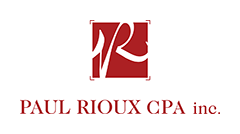Fiscal and Financial Planning Guide 2024-2025
Owners > Co-ownership fees
Following the adoption of Bill 141 and Bill 16, many owners are seeing, or will see, a significant increase in their co-ownership fees, particularly in the case of older buildings.
The main goal of these new laws is to improve the management of condominiums, so that they are adequately insured and have sufficient funds to carry out short, medium and long-term building maintenance.
In this regard, many will recall the collapse of a 12-storey building in Surfside, Florida, on June 12, 2021, which resulted in the deaths of over 90 people, including several Quebecers. This event highlighted deficiencies in the maintenance of condominiums, and prompted the authorities in both the United States and Canada to improve their oversight of this sector.
Highlights
1) Insurance requirements (Bill 141)
- Insurance covering reconstruction value in the event of a major disaster. The reconstruction value must be evaluated by an accredited appraiser at least every 5 years.
- Directors’ and officers’ liability insurance.
2) Maintenance logbook (Bill 16)
The syndicate is required to draw up a building maintenance schedule to help anticipate short, medium and longterm maintenance costs. The maintenance book must be prepared by an authorized expert and updated at least every 5 years.
3) Reserve funds to be set up

It’s clear that the new requirements for insurance coverage and the creation of co-insurance and contingency funds for maintenance will lead to a sometimes substantial increase in co-ownership fees.
Hectic co-owners’ meetings to be expected…
4) New buyers
The syndicate of co-owners must be able to provide an attestation of the condition of the co-ownership when a unit is sold.
